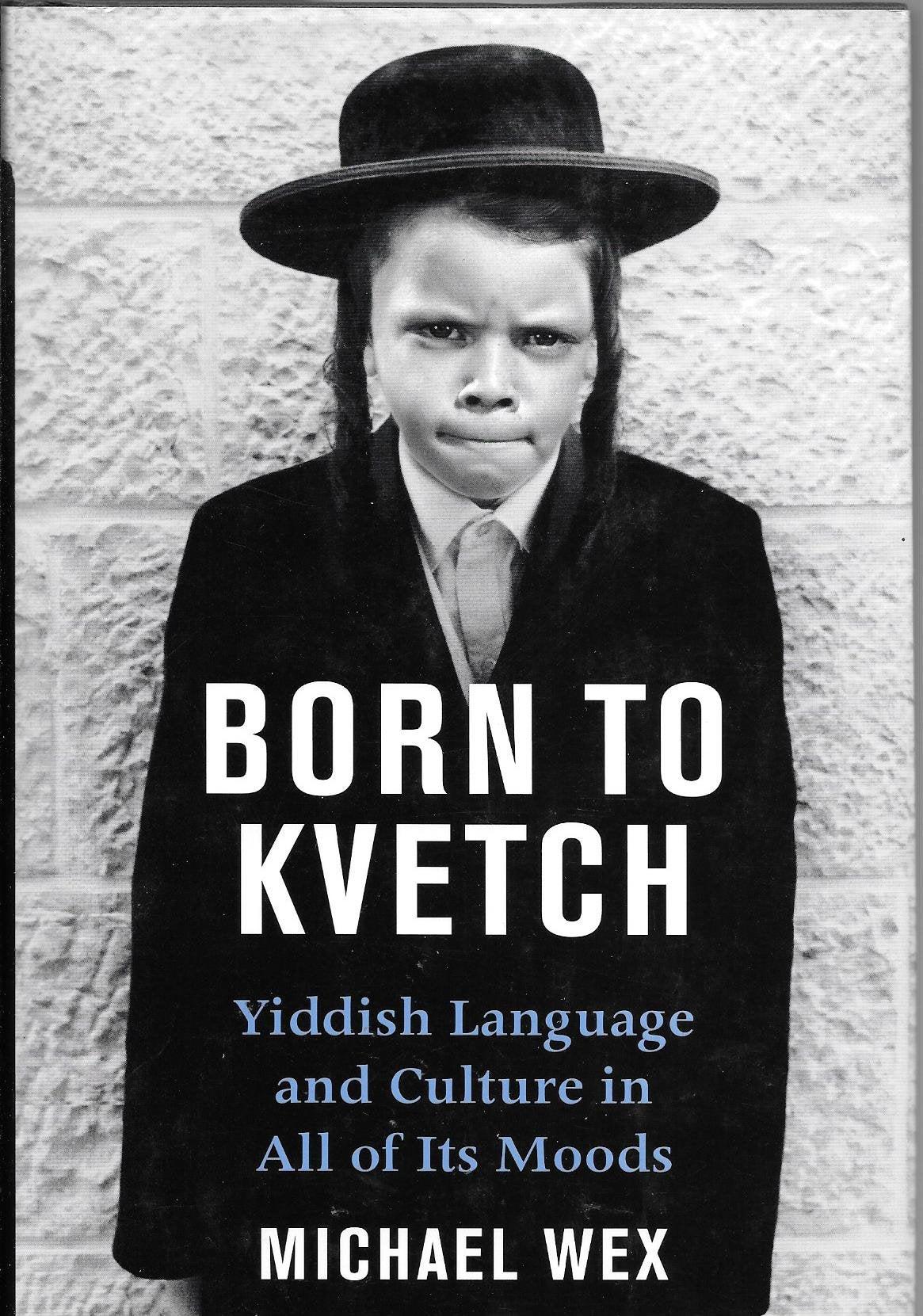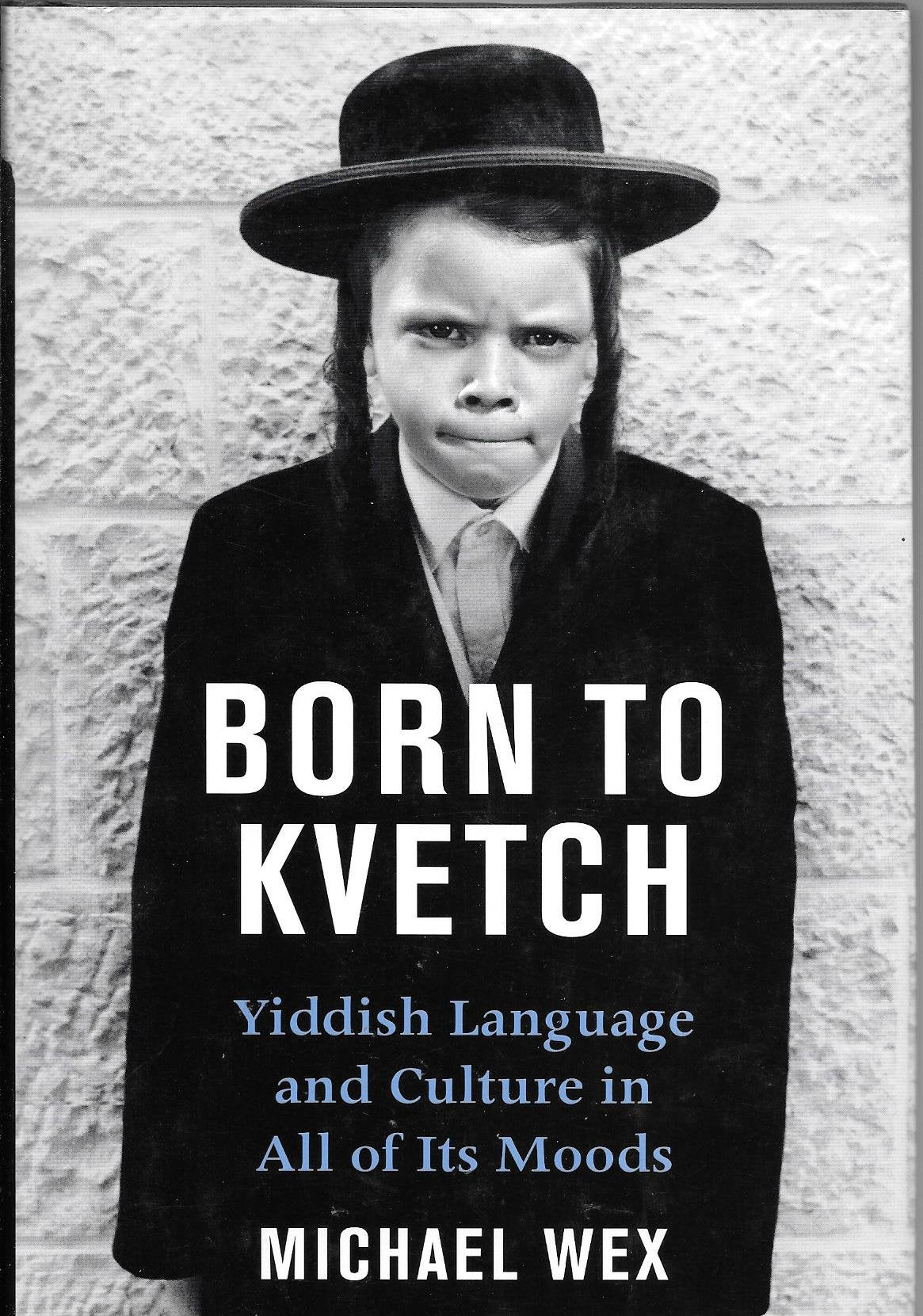St. Martin's Press
Born to Kvetch: Yiddish Language and Culture in All Its Moods
Regular price
$7.95 USD
Regular price
Sale price
$7.95 USD
Unit price
per
Shipping calculated at checkout.
Couldn't load pickup availability
Title: Born to Kvetch: Yiddish Language and Culture in All Its Moods
Author: Michael Wex
ISBN: 9780312307417
Publisher: St. Martin's Press
Published: 2005
Binding: Hardcover
Language: English
Publisher Description:
As the main spoken language of the Jews for more than a thousand years, Yiddish has had plenty to lament, plenty to conceal. Its phrases, idioms, and expressions paint a comprehensive picture of the mind-set that enabled the Jews of Europe to survive a millennium of unrelenting persecution: they never stopped "kvetching"---about God, gentiles, children, food, and everything (and anything) else. They even learned how to smile through their "kvetching" and express satisfaction in the form of complaint.
In "Born to Kvetch, " Michael Wex looks at the ingredients that went into this buffet of disenchantment and examines how they were mixed together to produce an almost limitless supply of striking idioms and withering curses (which get a chapter all to themselves). "Born to Kvetch" includes a wealth of material that's never appeared in English before. You'll find information on the Yiddish relationship to food, nature, divinity, and humanity. There's even a chapter about sex.
This is no "bobe mayse" (cock-and-bull story) from a "khokhem be-layle"(idiot, literally a "sage at night" when no one's looking), but a serious yet fun and funny look at a language that both shaped and was shaped by those who spoke it. From "tukhes" to "goy, ""meshugener" to "kvetch," Yiddish words have permeated and transformed English as well.
Through the idioms, phrases, metaphors, and fascinating history of this "kvetch-"full tongue, Michael Wex gives us a moving and inspiring portrait of a people, and a language, in exile.
Author: Michael Wex
ISBN: 9780312307417
Publisher: St. Martin's Press
Published: 2005
Binding: Hardcover
Language: English
Publisher Description:
As the main spoken language of the Jews for more than a thousand years, Yiddish has had plenty to lament, plenty to conceal. Its phrases, idioms, and expressions paint a comprehensive picture of the mind-set that enabled the Jews of Europe to survive a millennium of unrelenting persecution: they never stopped "kvetching"---about God, gentiles, children, food, and everything (and anything) else. They even learned how to smile through their "kvetching" and express satisfaction in the form of complaint.
In "Born to Kvetch, " Michael Wex looks at the ingredients that went into this buffet of disenchantment and examines how they were mixed together to produce an almost limitless supply of striking idioms and withering curses (which get a chapter all to themselves). "Born to Kvetch" includes a wealth of material that's never appeared in English before. You'll find information on the Yiddish relationship to food, nature, divinity, and humanity. There's even a chapter about sex.
This is no "bobe mayse" (cock-and-bull story) from a "khokhem be-layle"(idiot, literally a "sage at night" when no one's looking), but a serious yet fun and funny look at a language that both shaped and was shaped by those who spoke it. From "tukhes" to "goy, ""meshugener" to "kvetch," Yiddish words have permeated and transformed English as well.
Through the idioms, phrases, metaphors, and fascinating history of this "kvetch-"full tongue, Michael Wex gives us a moving and inspiring portrait of a people, and a language, in exile.

